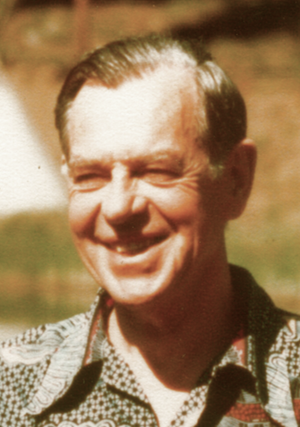
How to get rid of ego as dictator and turn it into messenger and servant and scout, to be in your service, is the trick.
Share this quote:
You have to learn to recognize your own depths.
Share this quote:
How to teach again what has been taught correctly it incorrectly 1000 thousand times, throughout the millenniums of mankinds prudent folly? That is the heros ultimate difficult task. How to render back into light-world language the speech-defying pronouncements of the dark? Many failures attest to the difficulties of this life-affirmative threshold.
Share this quote:
in America we have people from all kinds of backgrounds, all in a cluster, together, and consequently law has become very important in this country. Lawyers and law are what hold us together. There is no ethos.
Share this quote:
The only way you can talk about this great tide in which you’re a participant is as Schopenhauer did: the universe is a dream dreamed by a single dreamer where all the dream characters dream too.
Share this quote:
To call up modern versions of the old stories, one has to go forth and live life. As a result then, one will have the challenge of not only living the story, taking it all in, but also interpreting it in whatever ways are useful. So too, one will reap the reward of telling all about it afterward. Ones interest in the world, and in having experiences, is really an interest in hearing, having, living one more story, and then one more, then one more story, till one cannot live them out loud any longer. Perhaps it should be said that the drive to live out stories is as deep in the psyche, when awakened, as it is compelling to the psyche to listen to stories and learn from them. Clarissa Pinkola Estes, Ph.D. in Introduction to the 2004 edition of The hero with a thousand faces (J.Campbell)
Share this quote:
The look that one directs at things, both outward and inward, as an artist, is not the same as that with which one would regard the same as a man, but at once colder and more passionate. As a man, you might be well-disposed, patient, loving, positive, and have a wholly uncritical inclination to look upon everything as all right, but as an artist your daemon constrains you to observe, to take note, lightning fast and with hurtful malice, of every detail that in the literary sense would be characteristic, distinctive, significant, opening insights, typifying the race, the social or the psychological mode, recording all as mercilessly as though you had no human relationship to the observed object whatever.
Share this quote:
Every moment is utterly unique and will not be continued in eternity. This fact gives life its poignancy and should concentrate your attention on what you are experiencing now.
Share this quote:
One of the most interesting histories of what comes of rejecting science we may see in Islam, which in the beginning received, accepted, and even developed the classical legacy. For some five or six rich centuries there is an impressive Islamic record of scientific thought, experiment, and research, particularly in medicine. But then, alas! the authority of the general community, the Sunna, the consensus—which Mohammed the Prophet had declared would always be right—cracked down. The Word of God in the Koran was the only source and vehicle of truth. Scientific thought led to loss of belief in the origin of the world and in the Creator. And so it was that, just when the light of Greek learning was beginning to be carried from Islam to Europe—from circa 1100 onward—Islamic science and medicine came to a standstill and went dead....
Share this quote:
Society has provided [children] no rituals by which they become members of the tribe, of the community. All children need to be twice born, to learn to function rationally in the present world, leaving childhood behind.
Share this quote:
The first function of mythology is showing everything as a metaphor to transcendence.
Share this quote:
A mythological image that has to be explained to the brain is not working.
Share this quote:
Myth must be kept alive. The people who can keep it alive are the artists of one kind or another.
Share this quote:
[Comedies], in the ancient world, were regarded as of a higher rank than tragedy, of a deeper truth, of a more difficult realization, of a sounder structure, and of a revelation more complete. The happy ending of the fairy tale, the myth, and the divine comedy of the soul, is to be read, not as a contradiction, but as a transcendence of the universal tragedy of man.... Tragedy is the shattering of the forms and of our attachments to the forms; comedy, the wild and careless, inexhaustible joy of life invincible.
Share this quote:
The fundamental human experience is that of compassion.
Share this quote:
Mythology is to relate found truth to the living of a life.
Share this quote:
With passion you want to possess. The conversion of passion into compassion is the whole problem of marriage.
Share this quote:
The imitation of Christ is the joyful participation in the sorrows of the world.
Share this quote:
They thought that it would be a disgrace to go forth as a group. Each entered the forest at a point that he himself had chosen, where it was darkest and there was no path. If there is a path it is someone elses path and you are not on the adventure.
Share this quote:
The boy answers, Dont ask unless you are willing to be hurt.Indra says, I ask. Teach. (That, by the way, is a good Oriental idea: you dont teach until you are asked. You dont force your mission down peoples throats.)
Share this quote: